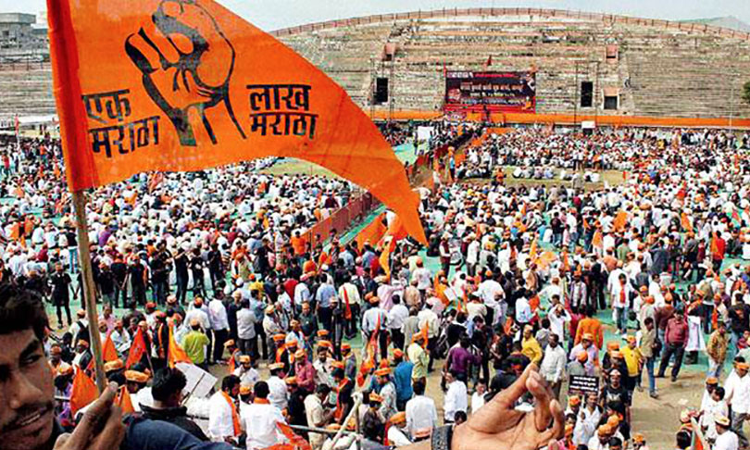'Political Decision': Plea In Bombay High Court Challenges State Govt's Move To Give 'Kunbi' Certificates To Maratha Community
Narsi Benwal
10 Sept 2025 10:45 PM IST

A Trust working for the welfare of the Veershaivya Lingayat community and its sub-castes, have petitioned the Bombay High Court through a Public Interest Litigation, challenging the decision of the Maharashtra government to issue Kunbi caste certificates to the Maratha community for availing reservation in education and public service.
The Pune based Trust - Shiva Akhil Bhartiya Veershaiva Yuvak Sanghatana, has contended that the Government Resolutions issued on September 2, 2025 (latest one) and the ones issued on September 7, 2023 and October 31, 2023, resolving to issue Kunbi caste certificates to the Maratha Community, are illegal and invalid.
The PIL has been filed through advocate Satish Talekar.
Notably, the latest GR was issued by the Social Justice and Special Assistance Department after lakhs of Maratha Community members brought Mumbai to a standstill and virtually paralysed the city. It was after the High Court's stern response to the protestors led by Maratha activist Manoj Jarange-Patil, the State declared that it will consider the demands of the community and implement the Hyderabad Gazette and therefore grant Kunbi caste certificates under the Other Backward Classes (OBC) category.
Challenging this very decision, the Trust has contended that all the three GRs are contrary to the categorical finding recorded by the Supreme Court that the Kunbis and the Marathas are two distinct castes and that Marathas are socially and educationally advanced class in comparison to the Kunbis.
"The impugned GRs are issued by circumventing the statutory and constitutional mandate of declaring a community as backward. The impugned GRs are ultra-vires and are arbitrary, discriminatory, unjust and violative of Article 14 of the Constitution of India. The impugned GRs are nothing but an act of political expediency to please, and placate the members of Maratha community," the PIL reads.
The PIL petition further states that the State Government has been contradicting itself on the very issue of providing reservation to the Maratha Community.
"The State of Maharashtra has been bent upon to grant reservation to the Maratha community and, therefore, has been adopting multi-pronged approaches for ensuring that Maratha community is provided reservation by treating them socially and educationally backward. However by doing that the Government is adopting contrary stands inasmuch as on the one Maratha hand, the Government enacted the SEBC Act of 2024 holding that it was necessary to constitute a separate class distinct from the existing OBCs and give separate reservation to Maratha community whereas on the other hand is issuing caste certificates to the members of Maratha community by treating them as Kunbis which is already included in the list of OBCs," the plea reads.
Further, the petition states that the grant of reservation to the Maratha community by treating them as Kunbis, which is historically and socially recognised as a forward class, stands in stark contrast to the foundational principles of affirmative action in India. Such a move by the State Government undermining the reports of several Backward Classes Commissions and the definitive judgment of the Supreme Court, poses a significant threat to the democratic structure and constitutional setup of the state. It signifies a departure from the core constitutional mandate of providing reservations to historically disadvantaged and marginalised communities, thereby diluting the purpose of social justice, the plea highlights.
"The political decision to grant reservation to the Marathas, in sheer ignorance of the judicial pronouncements and social realities, is a move driven by electoral considerations rather than a genuine commitment to social upliftment, thereby setting a dangerous precedent where dominant communities can leverage their political influence to gain benefits intended for the genuinely underprivileged. Such acts of the State erode the democratic process by prioritising political expediency over constitutional propriety and the rule of law," the PIL underscores.
Therefore, by accommodating the demands of a "forward class," the State not only denies the legitimate claims of genuinely backward communities but also fosters a sense of injustice and inequality leading to social unrest and disharmony, weakening the social fabric of the State, the plea states.
The PIL is likely to be heard by a division bench led by Chief Justice Shree Chandrasehkhar this week.


